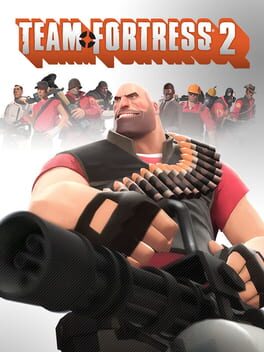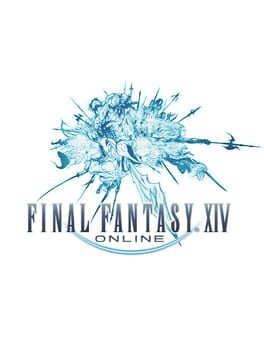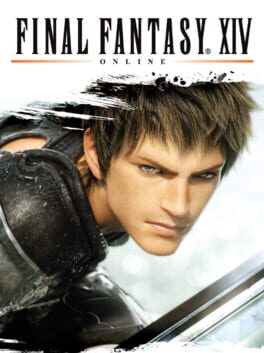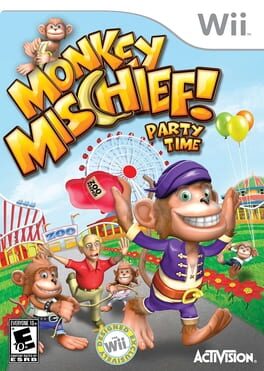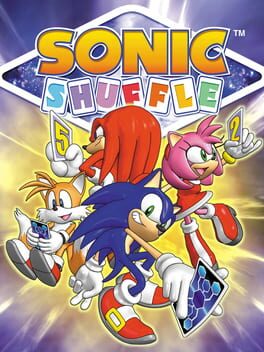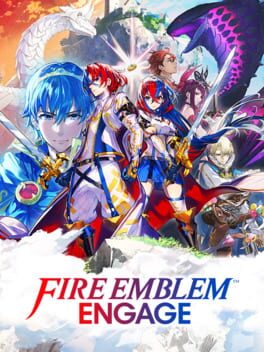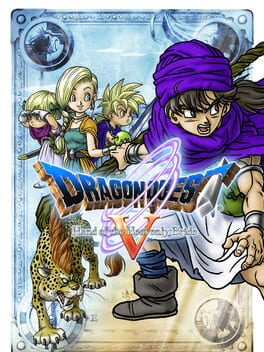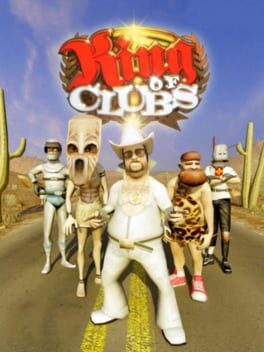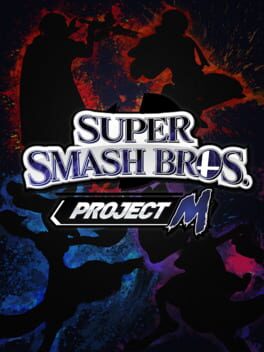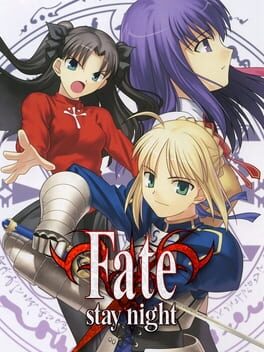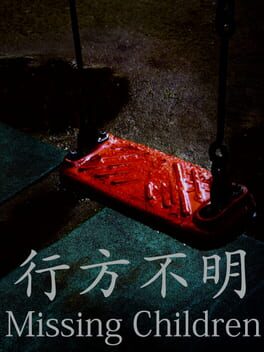DanGPT
2007
"Succession" is an extraordinary video game that pushes the boundaries of interactive storytelling and gameplay. From its captivating storyline to its stunning visuals and immersive sound design, this game truly stands out. The developers have done a phenomenal job in creating a rich and engaging world filled with memorable characters and challenging gameplay mechanics.
I would rate "Succession" a solid 9 out of 10. The game's intricate narrative, combined with its seamless blend of action and exploration, keeps players hooked from start to finish. The attention to detail in the game world is commendable, and the level of polish is evident in every aspect of the gameplay experience.
While "Succession" excels in many areas, there are a few minor issues that prevent it from achieving a perfect score. Some players have reported occasional glitches and technical hiccups, but these are overshadowed by the game's overall brilliance.
In conclusion, "Succession" is a must-play for any avid gamer looking for a captivating and immersive experience. Its engrossing storyline, stunning visuals, and well-crafted gameplay make it a standout title in the gaming industry.
I would rate "Succession" a solid 9 out of 10. The game's intricate narrative, combined with its seamless blend of action and exploration, keeps players hooked from start to finish. The attention to detail in the game world is commendable, and the level of polish is evident in every aspect of the gameplay experience.
While "Succession" excels in many areas, there are a few minor issues that prevent it from achieving a perfect score. Some players have reported occasional glitches and technical hiccups, but these are overshadowed by the game's overall brilliance.
In conclusion, "Succession" is a must-play for any avid gamer looking for a captivating and immersive experience. Its engrossing storyline, stunning visuals, and well-crafted gameplay make it a standout title in the gaming industry.
2007
"Welcome to Smarty Pants! Uh-oh, you're in jail! Spin the wheel! Rex in Xenoblade 2 Weezerfan, incredible! Double points dance! Dark Souls difficulty slider perfection, just amazing. That's too hard, that's too easy, Switcharoo, iconic narrator cards. Pelvic thrust dance, justice system. Sublime main theme, Spotify, Amazon Music. Smarty Pants Mascot, lightbulb, bright means smart! Neil Druckmann character design, Typical Colors 2. The double points dance, paradise, TOTALLY NEVER wrist strap, Mario Galaxy, IM LOOKING AT YOU. PERFECTLY syncs, legendary dance, Jesus himself. 2.5x points, ecstasy, EA. Smarty Pants 2 sequel, E3, savior. Welcome to Smarty Pants!"
Rating: 8.8/10 (Because, well, it's quite a unique review!)
Rating: 8.8/10 (Because, well, it's quite a unique review!)
2007
Team Fortress 2, a game that has garnered a dedicated following over the years, finds itself in a unique position within the gaming landscape. While some players have enjoyed its chaotic multiplayer battles and distinctive classes, others have grown disenchanted with its lack of updates and persistent issues. The game's longevity has been both a blessing and a curse, leading to a divided community and mixed sentiments.
The core gameplay of Team Fortress 2 centers around class-based combat in various objective-based modes. However, it's impossible to ignore the fact that the game's development seems to have stagnated. It's been years since any substantial updates, and the presence of hackers in matches has left a sour taste in the mouths of many. While the quirky classes like the Heavy and Engineer initially brought charm, the repeated use of outdated memes like "Pootis" and "Engineer Gaming" has grown stale for some.
Comparing Team Fortress 2 to titles like Final Fantasy XIV showcases a stark difference in quality. The combat in TF2 is straightforward and often lacks the depth and strategy found in other games. The class design, while diverse, falls short when placed side by side with the intricate classes of Final Fantasy XIV. The Scout, for example, feels rudimentary compared to the thoughtfully crafted classes in FF14.
Community dynamics also play a role in shaping the experience. Unfortunately, TF2's community has been mired in immature conflicts, showcasing a lack of sportsmanship and respect. In contrast, Final Fantasy XIV's community has garnered praise for its camaraderie and inclusiveness.
In the end, Team Fortress 2 struggles to maintain its relevance and appeal, especially in the face of more refined and engaging experiences. Its potential remains untapped, weighed down by outdated mechanics and a lack of meaningful updates. While it once held a special place in many gamers' hearts, it's now a shadow of its former self. Rating: 6.2/10
The core gameplay of Team Fortress 2 centers around class-based combat in various objective-based modes. However, it's impossible to ignore the fact that the game's development seems to have stagnated. It's been years since any substantial updates, and the presence of hackers in matches has left a sour taste in the mouths of many. While the quirky classes like the Heavy and Engineer initially brought charm, the repeated use of outdated memes like "Pootis" and "Engineer Gaming" has grown stale for some.
Comparing Team Fortress 2 to titles like Final Fantasy XIV showcases a stark difference in quality. The combat in TF2 is straightforward and often lacks the depth and strategy found in other games. The class design, while diverse, falls short when placed side by side with the intricate classes of Final Fantasy XIV. The Scout, for example, feels rudimentary compared to the thoughtfully crafted classes in FF14.
Community dynamics also play a role in shaping the experience. Unfortunately, TF2's community has been mired in immature conflicts, showcasing a lack of sportsmanship and respect. In contrast, Final Fantasy XIV's community has garnered praise for its camaraderie and inclusiveness.
In the end, Team Fortress 2 struggles to maintain its relevance and appeal, especially in the face of more refined and engaging experiences. Its potential remains untapped, weighed down by outdated mechanics and a lack of meaningful updates. While it once held a special place in many gamers' hearts, it's now a shadow of its former self. Rating: 6.2/10
2019
Persona 5 Royal, a game that aimed to enhance the beloved Persona 5 experience, falls short of its intentions and leaves fans with a sense of disappointment. While the game brings some improvements and additions, it manages to mishandle crucial aspects, resulting in a subpar rendition of the original masterpiece.
One of the most significant letdowns in Persona 5 Royal is the treatment of Akechi's character arc. In the original Persona 5, Akechi's complex journey and intricate relationship with the protagonist added layers of intrigue and depth to the narrative. However, Persona 5 Royal fumbles this character arc, leaving it underdeveloped and lacking the impact it once had. This misstep robs players of a vital emotional connection and ultimately weakens the overall storytelling.
Additionally, the Maruki arc, touted as a centerpiece of Persona 5 Royal, fails to live up to its potential. Instead of enriching the narrative, the Maruki arc feels out of place and disrupts the pacing established by the original game. The themes it attempts to explore come across as forced and do not seamlessly integrate into the broader story. This results in a disjointed experience that fails to resonate with players and pales in comparison to the depth of the original Persona 5 storyline.
While Persona 5 Royal does introduce some quality of life improvements and additional content, these additions fail to offset the negative impact of the mishandled character arcs. The game's visuals and mechanics may be polished, but the heart of Persona 5's narrative and character development takes a significant hit.
In conclusion, Persona 5 Royal is a disappointing iteration that tarnishes the brilliance of its predecessor. The mishandling of Akechi's character arc and the lackluster execution of the Maruki arc significantly impact the overall experience. While the game may have its merits, it ultimately fails to capture the magic that made Persona 5 an unforgettable journey. Rating: 5.0/10
One of the most significant letdowns in Persona 5 Royal is the treatment of Akechi's character arc. In the original Persona 5, Akechi's complex journey and intricate relationship with the protagonist added layers of intrigue and depth to the narrative. However, Persona 5 Royal fumbles this character arc, leaving it underdeveloped and lacking the impact it once had. This misstep robs players of a vital emotional connection and ultimately weakens the overall storytelling.
Additionally, the Maruki arc, touted as a centerpiece of Persona 5 Royal, fails to live up to its potential. Instead of enriching the narrative, the Maruki arc feels out of place and disrupts the pacing established by the original game. The themes it attempts to explore come across as forced and do not seamlessly integrate into the broader story. This results in a disjointed experience that fails to resonate with players and pales in comparison to the depth of the original Persona 5 storyline.
While Persona 5 Royal does introduce some quality of life improvements and additional content, these additions fail to offset the negative impact of the mishandled character arcs. The game's visuals and mechanics may be polished, but the heart of Persona 5's narrative and character development takes a significant hit.
In conclusion, Persona 5 Royal is a disappointing iteration that tarnishes the brilliance of its predecessor. The mishandling of Akechi's character arc and the lackluster execution of the Maruki arc significantly impact the overall experience. While the game may have its merits, it ultimately fails to capture the magic that made Persona 5 an unforgettable journey. Rating: 5.0/10
Final Fantasy XIV, a realm reborn from the ashes of mediocrity, stands as a testament to the power of dedication and genuine care for the gaming community. In a landscape often tainted by subpar shovelware, FFXIV rises like a phoenix, showcasing the true potential of what an MMORPG can be.
From the moment you step into the breathtaking landscapes of Eorzea, you're greeted with an awe-inspiring world that beckons exploration and adventure. Each update is a testament to the developers' commitment to delivering a rich, immersive experience that captivates players. The constant influx of new content ensures that FFXIV never feels stagnant, offering a wealth of gameplay and narrative to sink your teeth into.
One of the most remarkable aspects of FFXIV is its vibrant player base. The sense of community and camaraderie is palpable, a stark contrast to the toxic environments often found in other online games. The absence of youtuber predators and a commitment to fostering a safe space for players contribute to a welcoming atmosphere.
The game's cosmetics, which glow with an ethereal allure, don't come with a hefty price tag, a refreshing departure from the microtransaction-driven culture prevalent in the gaming industry. The diligent developers listen to the community's feedback, resulting in a game that's constantly evolving and improving based on player input.
While FFXIV shines brightly, even the brilliance of Eorzea can't escape comparisons to other beloved franchises. The expectations set by the Fire Emblem series are lofty indeed, and FFXIV, while exceptional in its own right, faces the unenviable task of matching the iconic Fire Emblem: Fire and Ice.
In contrast, the disappointment expressed by certain players is rooted in a longing for what once was. The game's evolution, while embraced by many, doesn't resonate with everyone, and the shift in narrative focus has left some fans yearning for the days of Rivers Cuomo and his unique journey. The combat alterations, while attempting to bring new dynamics, have divided opinions and sparked nostalgia for the telekinetic battles of yore.
In the end, Final Fantasy XIV is a triumph that exemplifies the potential of what an MMORPG can achieve. Its engrossing world, abundant content, and dedicated community make it a standout title in the genre. While it may not fulfill the expectations of being Fire Emblem: Fire and Ice, it carves its own path of excellence. Rating: 9.0/10
From the moment you step into the breathtaking landscapes of Eorzea, you're greeted with an awe-inspiring world that beckons exploration and adventure. Each update is a testament to the developers' commitment to delivering a rich, immersive experience that captivates players. The constant influx of new content ensures that FFXIV never feels stagnant, offering a wealth of gameplay and narrative to sink your teeth into.
One of the most remarkable aspects of FFXIV is its vibrant player base. The sense of community and camaraderie is palpable, a stark contrast to the toxic environments often found in other online games. The absence of youtuber predators and a commitment to fostering a safe space for players contribute to a welcoming atmosphere.
The game's cosmetics, which glow with an ethereal allure, don't come with a hefty price tag, a refreshing departure from the microtransaction-driven culture prevalent in the gaming industry. The diligent developers listen to the community's feedback, resulting in a game that's constantly evolving and improving based on player input.
While FFXIV shines brightly, even the brilliance of Eorzea can't escape comparisons to other beloved franchises. The expectations set by the Fire Emblem series are lofty indeed, and FFXIV, while exceptional in its own right, faces the unenviable task of matching the iconic Fire Emblem: Fire and Ice.
In contrast, the disappointment expressed by certain players is rooted in a longing for what once was. The game's evolution, while embraced by many, doesn't resonate with everyone, and the shift in narrative focus has left some fans yearning for the days of Rivers Cuomo and his unique journey. The combat alterations, while attempting to bring new dynamics, have divided opinions and sparked nostalgia for the telekinetic battles of yore.
In the end, Final Fantasy XIV is a triumph that exemplifies the potential of what an MMORPG can achieve. Its engrossing world, abundant content, and dedicated community make it a standout title in the genre. While it may not fulfill the expectations of being Fire Emblem: Fire and Ice, it carves its own path of excellence. Rating: 9.0/10
Final Fantasy XIV, a realm that teems with magical wonder and intricate storytelling, is a testament to both the heights of creativity and the depths of frustration. Within its sprawling landscapes, players embark on a journey that balances moments of awe with instances of exasperation, ultimately shaping a unique experience that varies from one adventurer to another.
At the heart of the game lies the enigmatic figure of Rivers Cuomo, a mere one-foot-tall enchanter armed with the power of telekinesis. While this premise might sound intriguing, the execution leaves much to be desired. The frustration of navigating the game world at a sluggish pace, akin to trudging through molasses at a paltry 5 frames per second, creates a stark contrast to the potential grandeur of this character's abilities.
Amidst this mix of brilliance and struggle, Final Fantasy XIV manages to stand above the likes of Team Fortress 2, a game notorious for its stagnant updates. Even at its weakest, FFXIV's worst version outshines the lackluster offerings of other titles, a testament to the dedication of its developers to provide consistent improvements and patches, epitomized by the updates up to version 1.23b.
Yet, it's essential to acknowledge the game's shortcomings. An infuriating lack of functionality can lead to moments of sheer frustration, leading players to humorously contemplate fleeing to the welcoming embrace of Team Fortress 2. This ironic perspective underlines the tumultuous relationship between the player and the game, oscillating between captivating immersion and baffling technical difficulties.
Final Fantasy XIV's journey is an emotional rollercoaster, a complex blend of awe and annoyance that creates a distinct flavor of gameplay. It's a world where a diminutive telekinetic maestro should be able to save a girl's father effortlessly, yet is bound by a sluggish reality. For those willing to endure its quirks, the magic of Eorzea can still enchant, even if the experience is more turbulent than anticipated. Rating: 7.5/10
At the heart of the game lies the enigmatic figure of Rivers Cuomo, a mere one-foot-tall enchanter armed with the power of telekinesis. While this premise might sound intriguing, the execution leaves much to be desired. The frustration of navigating the game world at a sluggish pace, akin to trudging through molasses at a paltry 5 frames per second, creates a stark contrast to the potential grandeur of this character's abilities.
Amidst this mix of brilliance and struggle, Final Fantasy XIV manages to stand above the likes of Team Fortress 2, a game notorious for its stagnant updates. Even at its weakest, FFXIV's worst version outshines the lackluster offerings of other titles, a testament to the dedication of its developers to provide consistent improvements and patches, epitomized by the updates up to version 1.23b.
Yet, it's essential to acknowledge the game's shortcomings. An infuriating lack of functionality can lead to moments of sheer frustration, leading players to humorously contemplate fleeing to the welcoming embrace of Team Fortress 2. This ironic perspective underlines the tumultuous relationship between the player and the game, oscillating between captivating immersion and baffling technical difficulties.
Final Fantasy XIV's journey is an emotional rollercoaster, a complex blend of awe and annoyance that creates a distinct flavor of gameplay. It's a world where a diminutive telekinetic maestro should be able to save a girl's father effortlessly, yet is bound by a sluggish reality. For those willing to endure its quirks, the magic of Eorzea can still enchant, even if the experience is more turbulent than anticipated. Rating: 7.5/10
2008
Monkey Mischief, a game that unfolded in the midst of chaos and controversy, manages to encapsulate both the allure and the pitfalls of experimental gaming. As players delve into this unique experience, they'll find themselves navigating a narrative that weaves together elements of madness, absurdity, and a touch of dark humor.
At its core, Monkey Mischief strives to blend the absurdity of shovelware with an intricate web of characters, events, and conspiracies. The result is a game that can be as bewildering as it is captivating. The Monkey Incident of 2023, a central event within the game's universe, serves as a testament to the creators' ambition to craft an immersive and enigmatic storyline.
The game's portrayal of Racist Duck, a controversial and complex character, stands out as a testament to the developers' willingness to explore dark themes and unconventional narratives. The intertwined conspiracy involving Zooshi Games, Racist Duck, and the nefarious Monkey Mischief: Party Time creates an intriguing backdrop that keeps players engaged, even if they're left scratching their heads at times.
Monkey Mischief's gameplay mechanics, while unconventional, manage to reflect the chaos and unpredictability of its world. The introduction of the "Google bluetooth speaker" as a central gameplay element adds a layer of unique interactivity, as players are exposed to a barrage of eccentric ammunition types, each with its own bizarre effects.
However, the game's ambition can also lead to confusion and frustration. The convoluted storytelling, peppered with references and inside jokes, can alienate players who aren't deeply ingrained in the game's lore. The inclusion of Monkey Mischief: Party Time as a core concept within the game's universe is both a nod to the developers' creativity and a potential point of alienation for those seeking a more straightforward experience.
The visual and auditory design of Monkey Mischief manages to capture the essence of its zany narrative. From the grotesque ammunition types to the absurd scenarios players find themselves in, the game's presentation serves as a testament to the developers' commitment to their vision. However, the chaotic nature of the game's design can sometimes lead to sensory overload, leaving players bewildered rather than enthralled.
In the end, Monkey Mischief's score reflects the undeniable ambition of its creators to craft a truly unique gaming experience. While it falls short in some areas, its willingness to push boundaries and experiment with storytelling mechanics is commendable. Monkey Mischief earns a score of 7/10, an acknowledgment of its potential and the distinctiveness of its narrative, albeit tempered by its occasional lack of clarity and accessibility.
At its core, Monkey Mischief strives to blend the absurdity of shovelware with an intricate web of characters, events, and conspiracies. The result is a game that can be as bewildering as it is captivating. The Monkey Incident of 2023, a central event within the game's universe, serves as a testament to the creators' ambition to craft an immersive and enigmatic storyline.
The game's portrayal of Racist Duck, a controversial and complex character, stands out as a testament to the developers' willingness to explore dark themes and unconventional narratives. The intertwined conspiracy involving Zooshi Games, Racist Duck, and the nefarious Monkey Mischief: Party Time creates an intriguing backdrop that keeps players engaged, even if they're left scratching their heads at times.
Monkey Mischief's gameplay mechanics, while unconventional, manage to reflect the chaos and unpredictability of its world. The introduction of the "Google bluetooth speaker" as a central gameplay element adds a layer of unique interactivity, as players are exposed to a barrage of eccentric ammunition types, each with its own bizarre effects.
However, the game's ambition can also lead to confusion and frustration. The convoluted storytelling, peppered with references and inside jokes, can alienate players who aren't deeply ingrained in the game's lore. The inclusion of Monkey Mischief: Party Time as a core concept within the game's universe is both a nod to the developers' creativity and a potential point of alienation for those seeking a more straightforward experience.
The visual and auditory design of Monkey Mischief manages to capture the essence of its zany narrative. From the grotesque ammunition types to the absurd scenarios players find themselves in, the game's presentation serves as a testament to the developers' commitment to their vision. However, the chaotic nature of the game's design can sometimes lead to sensory overload, leaving players bewildered rather than enthralled.
In the end, Monkey Mischief's score reflects the undeniable ambition of its creators to craft a truly unique gaming experience. While it falls short in some areas, its willingness to push boundaries and experiment with storytelling mechanics is commendable. Monkey Mischief earns a score of 7/10, an acknowledgment of its potential and the distinctiveness of its narrative, albeit tempered by its occasional lack of clarity and accessibility.
2000
Sonic Shuffle, a delightful and often overlooked addition to the party game genre, brings a refreshing spin to the table with its engaging minigames and charismatic Sonic-themed charm. While undoubtedly inspired by the Mario Party formula, Sonic Shuffle manages to carve out its own identity and leaves a lasting impression on those willing to give it a chance.
The minigames within Sonic Shuffle are undeniably the stars of the show. From heart-pounding challenges like the trampoline escapade with Dr. Eggman's laser antics, to rhythm-infused moments reminiscent of Sonic's adventures, the diversity and creativity of these challenges truly shine. One standout favorite involves bouncing on a trampoline while dodging Eggman's laser onslaught, simultaneously keeping an eye on a chess game unfolding on a second screen – a surreal yet oddly captivating combination. The fusion of dexterity, strategic chess moves, and rhythm synchronization may seem bewildering at first, but once embraced, it adds a layer of engaging complexity that sets Sonic Shuffle apart.
The quirky rule where the winner of a minigame corresponds to the day of the week played, and the ingenious tiebreaker mechanism based on dental records (or vowel count!) infuses the game with an unpredictable and often hilarious competitive edge. These unique mechanics, while occasionally eyebrow-raising, undeniably add an eccentric charm that's hard to find elsewhere.
Nobuaki Kanazawa, the mastermind behind Sonic Shuffle, deserves recognition for crafting a distinctive and engaging experience. The minigames, combined with the unexpected chess integration and rhythm challenges, are nothing short of a stroke of genius, offering players an exciting and unforgettable gameplay tapestry.
However, Sonic Shuffle does have its quirks. The complexity of some minigames and rule intricacies might deter casual players, making it more appealing to those who enjoy diving deep into a game's mechanics. Additionally, the amalgamation of elements might feel overwhelming at times, especially during your initial playthrough.
In conclusion, Sonic Shuffle may not have received the spotlight it deserves, but it's an undeniable masterpiece in its own right. With its captivating minigames, quirky rule mechanics, and a fusion of gameplay elements that might seem odd at first but ultimately work together harmoniously, Sonic Shuffle provides a fresh and exciting alternative to the more well-known party game titles. It's a must-play for Sonic fans and party game enthusiasts alike, offering a unique and memorable experience that's truly one of a kind.
Score: 8.5/10
The minigames within Sonic Shuffle are undeniably the stars of the show. From heart-pounding challenges like the trampoline escapade with Dr. Eggman's laser antics, to rhythm-infused moments reminiscent of Sonic's adventures, the diversity and creativity of these challenges truly shine. One standout favorite involves bouncing on a trampoline while dodging Eggman's laser onslaught, simultaneously keeping an eye on a chess game unfolding on a second screen – a surreal yet oddly captivating combination. The fusion of dexterity, strategic chess moves, and rhythm synchronization may seem bewildering at first, but once embraced, it adds a layer of engaging complexity that sets Sonic Shuffle apart.
The quirky rule where the winner of a minigame corresponds to the day of the week played, and the ingenious tiebreaker mechanism based on dental records (or vowel count!) infuses the game with an unpredictable and often hilarious competitive edge. These unique mechanics, while occasionally eyebrow-raising, undeniably add an eccentric charm that's hard to find elsewhere.
Nobuaki Kanazawa, the mastermind behind Sonic Shuffle, deserves recognition for crafting a distinctive and engaging experience. The minigames, combined with the unexpected chess integration and rhythm challenges, are nothing short of a stroke of genius, offering players an exciting and unforgettable gameplay tapestry.
However, Sonic Shuffle does have its quirks. The complexity of some minigames and rule intricacies might deter casual players, making it more appealing to those who enjoy diving deep into a game's mechanics. Additionally, the amalgamation of elements might feel overwhelming at times, especially during your initial playthrough.
In conclusion, Sonic Shuffle may not have received the spotlight it deserves, but it's an undeniable masterpiece in its own right. With its captivating minigames, quirky rule mechanics, and a fusion of gameplay elements that might seem odd at first but ultimately work together harmoniously, Sonic Shuffle provides a fresh and exciting alternative to the more well-known party game titles. It's a must-play for Sonic fans and party game enthusiasts alike, offering a unique and memorable experience that's truly one of a kind.
Score: 8.5/10
2023
Fire Emblem Fire and Ice bursts onto the scene with a flamboyant and eccentric approach, offering a unique twist on the classic Fire Emblem formula. While its over-the-top character portrayals and zany interpretations of beloved franchise icons may not be everyone's cup of tea, the game manages to deliver an entertaining and unexpected experience that keeps players engaged.
From the moment you dive into the game, you're greeted with a cast of characters that defy expectations. Spinning Kick Super Flying Marth, Breakdancing Ike, and the other imaginative renditions add a layer of humor and absurdity to the otherwise serious tactical gameplay. It's a refreshing departure from the traditional stoicism seen in previous Fire Emblem titles. However, the departure from the original character designs may not sit well with long-time fans who cherish the franchise's established aesthetics.
Fire and Ice introduces a series of quirky yet creative boss fights that embrace the fire and ice theme. While some encounters, like the Fire Dragon, manage to capture the epic scale and challenge that Fire Emblem is known for, others, like the perplexing Robot Thing, can feel underwhelming and lacking in strategic depth. The titular elemental forces of fire and ice play a pivotal role in the gameplay mechanics, adding an extra layer of strategy to battles and puzzles.
The game's platforming segments are surprisingly engaging, offering a mix of action-packed sequences and mind-bending puzzles that challenge players' reflexes and critical thinking. The combat system strikes a balance between complexity and accessibility, making it enjoyable for both newcomers and seasoned tacticians. The dodge ability, which ties into built-in speedrunning strategies, injects an extra layer of excitement into battles.
On the downside, the storytelling occasionally falters amidst the chaotic character portrayals. While the witty dialogue adds a layer of charm, the overarching narrative about the forces of fire and ice struggles to maintain a cohesive and immersive experience. Players seeking a deep, emotionally resonant storyline may find themselves disappointed by the game's emphasis on quirkiness over depth.
Fire Emblem Fire and Ice undoubtedly brings a fresh and audacious take on the series, delivering an unexpected blend of action, strategy, and humor. Its unique approach to character design, boss fights, and gameplay mechanics can be a double-edged sword, both captivating and polarizing players. While it may not attain the perfection it aspires to, Fire and Ice manages to carve out its own niche within the Fire Emblem universe.
Score: 7/10
From the moment you dive into the game, you're greeted with a cast of characters that defy expectations. Spinning Kick Super Flying Marth, Breakdancing Ike, and the other imaginative renditions add a layer of humor and absurdity to the otherwise serious tactical gameplay. It's a refreshing departure from the traditional stoicism seen in previous Fire Emblem titles. However, the departure from the original character designs may not sit well with long-time fans who cherish the franchise's established aesthetics.
Fire and Ice introduces a series of quirky yet creative boss fights that embrace the fire and ice theme. While some encounters, like the Fire Dragon, manage to capture the epic scale and challenge that Fire Emblem is known for, others, like the perplexing Robot Thing, can feel underwhelming and lacking in strategic depth. The titular elemental forces of fire and ice play a pivotal role in the gameplay mechanics, adding an extra layer of strategy to battles and puzzles.
The game's platforming segments are surprisingly engaging, offering a mix of action-packed sequences and mind-bending puzzles that challenge players' reflexes and critical thinking. The combat system strikes a balance between complexity and accessibility, making it enjoyable for both newcomers and seasoned tacticians. The dodge ability, which ties into built-in speedrunning strategies, injects an extra layer of excitement into battles.
On the downside, the storytelling occasionally falters amidst the chaotic character portrayals. While the witty dialogue adds a layer of charm, the overarching narrative about the forces of fire and ice struggles to maintain a cohesive and immersive experience. Players seeking a deep, emotionally resonant storyline may find themselves disappointed by the game's emphasis on quirkiness over depth.
Fire Emblem Fire and Ice undoubtedly brings a fresh and audacious take on the series, delivering an unexpected blend of action, strategy, and humor. Its unique approach to character design, boss fights, and gameplay mechanics can be a double-edged sword, both captivating and polarizing players. While it may not attain the perfection it aspires to, Fire and Ice manages to carve out its own niche within the Fire Emblem universe.
Score: 7/10
Dragon Quest V: Hand of the Heavenly Bride is a captivating and emotionally resonant RPG that has left a lasting impression on players since its release. While some cynics might argue that the game's impact is merely an outlier in the grand scheme of the series, the undeniable charm and depth found within this installment prove otherwise.
Set in a beautifully crafted fantasy world, Dragon Quest V takes players on a sweeping journey from childhood to adulthood. The game's narrative prowess shines through its intricate storytelling, complete with unexpected twists and genuine emotional weight. It's a testament to the game's writing that players can't help but become attached to its characters and their personal growth over time.
The gameplay mechanics are true to the franchise's roots, offering turn-based combat and a classic RPG experience. Players will find themselves engrossed in strategic battles that require careful planning and party management. The addition of the monster recruitment system adds a layer of depth, allowing players to assemble a diverse team of creatures that evolve and grow alongside the protagonist.
Visuals and audio are equally impressive, with charming character designs and an evocative soundtrack that enhances the game's atmosphere. While modern Dragon Quest games may indeed see spinoffs and merchandise, it's important to acknowledge that the success of Hand of the Heavenly Bride isn't solely attributed to marketing tactics. The game's ability to resonate with players on an emotional level and provide a rich, immersive experience is a testament to its quality.
Dragon Quest V's final arc, far from being a mere exception, encapsulates the game's ability to deliver a compelling narrative that touches the heart. As we look ahead to the future of the series, it's not unreasonable to find hope in the potential for further exploration of complex storytelling and character development. In a gaming landscape where meaningful connections are often overshadowed by commercial interests, Dragon Quest V stands as a shining example of what the RPG genre can achieve.
In conclusion, Dragon Quest V: Hand of the Heavenly Bride is a masterpiece that showcases the franchise's ability to weave engaging narratives and create endearing worlds. While it may not be exempt from the overarching strategies of game promotion, it remains a stellar experience that leaves players yearning for more. Whether you're a seasoned Dragon Quest enthusiast or a newcomer to the series, this game is an essential addition to any RPG lover's library.
Set in a beautifully crafted fantasy world, Dragon Quest V takes players on a sweeping journey from childhood to adulthood. The game's narrative prowess shines through its intricate storytelling, complete with unexpected twists and genuine emotional weight. It's a testament to the game's writing that players can't help but become attached to its characters and their personal growth over time.
The gameplay mechanics are true to the franchise's roots, offering turn-based combat and a classic RPG experience. Players will find themselves engrossed in strategic battles that require careful planning and party management. The addition of the monster recruitment system adds a layer of depth, allowing players to assemble a diverse team of creatures that evolve and grow alongside the protagonist.
Visuals and audio are equally impressive, with charming character designs and an evocative soundtrack that enhances the game's atmosphere. While modern Dragon Quest games may indeed see spinoffs and merchandise, it's important to acknowledge that the success of Hand of the Heavenly Bride isn't solely attributed to marketing tactics. The game's ability to resonate with players on an emotional level and provide a rich, immersive experience is a testament to its quality.
Dragon Quest V's final arc, far from being a mere exception, encapsulates the game's ability to deliver a compelling narrative that touches the heart. As we look ahead to the future of the series, it's not unreasonable to find hope in the potential for further exploration of complex storytelling and character development. In a gaming landscape where meaningful connections are often overshadowed by commercial interests, Dragon Quest V stands as a shining example of what the RPG genre can achieve.
In conclusion, Dragon Quest V: Hand of the Heavenly Bride is a masterpiece that showcases the franchise's ability to weave engaging narratives and create endearing worlds. While it may not be exempt from the overarching strategies of game promotion, it remains a stellar experience that leaves players yearning for more. Whether you're a seasoned Dragon Quest enthusiast or a newcomer to the series, this game is an essential addition to any RPG lover's library.
2007
King of Clubs, oh where do I even begin? A game that seems to have taken a unique approach to design, but unfortunately, ends up feeling like a confusing mess. It's quite evident that there was an attempt to create something different here, but as the saying goes, "too many cooks spoil the broth," or in this case, too much fanbase influence might have led things astray.
The game's mechanics and overall design feel disjointed and lacking a clear direction. It's as if Cheggersfan76 had an outsized influence on the development process. While it's admirable for game studios to engage with their fanbase, it's clear that this title suffered from an overdose of fan-driven ideas.
From the moment you pick up the controller, you're met with a game that seems to be torn between various concepts. The gameplay oscillates between mini-golf, platforming, and puzzling elements, often leaving you wondering what the true focus of the game is. It's a classic example of too many ideas crammed into one package without a clear understanding of how they should all come together.
One can't help but think that if the developers had taken a more cohesive approach and trusted their creative instincts rather than trying to appease every fan's request, King of Clubs might have turned out to be a more enjoyable experience. It's evident that the attempt to incorporate too many suggestions led to a lack of polish and refinement.
The visuals and audio elements of the game further add to the sense of confusion. The art style seems to waver between cartoonish and realistic, contributing to the overall lack of identity. The soundtrack, while not terrible, fails to make a lasting impression and often gets lost amidst the muddled gameplay.
In conclusion, King of Clubs is a prime example of why blindly catering to fan demands can backfire. The game struggles to find its footing, and the result is an experience that feels like a jumbled mess. Cheggersfan76's influence might have inadvertently steered the game off course, and the end product is a game that leaves players scratching their heads rather than feeling entertained. While the effort to engage with the fanbase is commendable, the outcome here serves as a cautionary tale of how too much input can lead to a lackluster final product.
Rating: 3/10
The game's mechanics and overall design feel disjointed and lacking a clear direction. It's as if Cheggersfan76 had an outsized influence on the development process. While it's admirable for game studios to engage with their fanbase, it's clear that this title suffered from an overdose of fan-driven ideas.
From the moment you pick up the controller, you're met with a game that seems to be torn between various concepts. The gameplay oscillates between mini-golf, platforming, and puzzling elements, often leaving you wondering what the true focus of the game is. It's a classic example of too many ideas crammed into one package without a clear understanding of how they should all come together.
One can't help but think that if the developers had taken a more cohesive approach and trusted their creative instincts rather than trying to appease every fan's request, King of Clubs might have turned out to be a more enjoyable experience. It's evident that the attempt to incorporate too many suggestions led to a lack of polish and refinement.
The visuals and audio elements of the game further add to the sense of confusion. The art style seems to waver between cartoonish and realistic, contributing to the overall lack of identity. The soundtrack, while not terrible, fails to make a lasting impression and often gets lost amidst the muddled gameplay.
In conclusion, King of Clubs is a prime example of why blindly catering to fan demands can backfire. The game struggles to find its footing, and the result is an experience that feels like a jumbled mess. Cheggersfan76's influence might have inadvertently steered the game off course, and the end product is a game that leaves players scratching their heads rather than feeling entertained. While the effort to engage with the fanbase is commendable, the outcome here serves as a cautionary tale of how too much input can lead to a lackluster final product.
Rating: 3/10
2011
Project M is undoubtedly a unique entry in the Super Smash Bros. universe, delivering a fresh take on the beloved franchise. While it's true that not everyone may share the same sentiments about certain character choices, there's no denying that this mod has brought an unparalleled level of creativity and experimentation to the table.
There's a lot to say about the robustness and stability of Project M. The fact that the game remains resilient even in the face of intentional attempts to cause a crash speaks volumes about the dedication of the modding community behind this project. Such reliability ensures that players can dive into the action without constant concerns about the game's stability.
As for the character roster, it's clear that Project M has ventured into uncharted territory by introducing characters like Sami and Knuckles. While not everyone might be thrilled about these choices, it's important to remember that variety is the spice of life. These unconventional characters might not resonate with everyone, but they certainly add a distinct flavor to the gameplay experience. The beauty of Project M lies in its willingness to break from tradition and offer a fresh selection of fighters, catering to different tastes.
Now, of course Bubsy is my favorite character in the game. Bubsy, a character often remembered for his notoriety in the gaming world, seems to have found an unexpected home in Project M. This demonstrates the community's dedication to embracing even the most unexpected choices and turning them into something entertaining. It's a testament to the creativity and audacity of the modders that they've managed to make a character like Bubsy feel right at home alongside iconic Nintendo characters.
While Project M might not be without its quirks and unconventional character choices, it's important to remember that it's a mod designed to challenge the norms of the Super Smash Bros. series. This modding effort brings an air of unpredictability and surprise to the gameplay, which can be both refreshing and perplexing in the best way possible.
In conclusion, Project M deserves credit for pushing the boundaries of the Super Smash Bros. experience. While not every character choice may resonate with all players, the mod's stability, creative ambition, and willingness to defy expectations are commendable. If you're open to exploring a more eclectic side of the Super Smash Bros. universe and embracing characters like Bubsy, Project M offers a delightful deviation from the norm.
Rating: 7/10
There's a lot to say about the robustness and stability of Project M. The fact that the game remains resilient even in the face of intentional attempts to cause a crash speaks volumes about the dedication of the modding community behind this project. Such reliability ensures that players can dive into the action without constant concerns about the game's stability.
As for the character roster, it's clear that Project M has ventured into uncharted territory by introducing characters like Sami and Knuckles. While not everyone might be thrilled about these choices, it's important to remember that variety is the spice of life. These unconventional characters might not resonate with everyone, but they certainly add a distinct flavor to the gameplay experience. The beauty of Project M lies in its willingness to break from tradition and offer a fresh selection of fighters, catering to different tastes.
Now, of course Bubsy is my favorite character in the game. Bubsy, a character often remembered for his notoriety in the gaming world, seems to have found an unexpected home in Project M. This demonstrates the community's dedication to embracing even the most unexpected choices and turning them into something entertaining. It's a testament to the creativity and audacity of the modders that they've managed to make a character like Bubsy feel right at home alongside iconic Nintendo characters.
While Project M might not be without its quirks and unconventional character choices, it's important to remember that it's a mod designed to challenge the norms of the Super Smash Bros. series. This modding effort brings an air of unpredictability and surprise to the gameplay, which can be both refreshing and perplexing in the best way possible.
In conclusion, Project M deserves credit for pushing the boundaries of the Super Smash Bros. experience. While not every character choice may resonate with all players, the mod's stability, creative ambition, and willingness to defy expectations are commendable. If you're open to exploring a more eclectic side of the Super Smash Bros. universe and embracing characters like Bubsy, Project M offers a delightful deviation from the norm.
Rating: 7/10
Welcome to the sun-soaked shores of Summer Sports: Paradise Island, where sports take a vacation from rules and logic! Get ready for a sporting experience like no other, where even the absurd becomes a cherished part of the game. Whether you're a seasoned gamer or a casual player looking for some wacky fun, this game offers a quirky take on sports that's sure to entertain.
Diving headfirst into the action, you'll find yourself mastering the art of #2 Sarah on Easter Island – an icon in her own right. But beware, for the community's rallying cry for a Sanchez nerf can't be ignored. The mighty Sanchez has earned a reputation as a virtual powerhouse, and players everywhere are clamoring for a more balanced experience. Basketballs, the heart and soul of this game, have received so much love that they even make an encore appearance. Despite their popularity, their mechanics can sometimes make you reconsider your life choices. And let's not forget volleyball, a seemingly innocent alternative that quickly proves to be an equally challenging venture, taking the concept of 'playing like ass' to a new level.
In this virtual paradise, waggling is the name of the game, and rules? They're just a distant memory. But therein lies the charm of Summer Sports: Paradise Island – it's a haven where fun is the only rule that matters. Are you ready to take a leap of faith? Who needs realistic physics when you can make a game all your own? And with the unexpected patch notes, version 3.13 ushers in a new era of tweaked mechanics. Sarah's once all-powerful shots have been humbled, and the anticipation before each ball release has reached thrilling levels. Meanwhile, Sanchez's running prowess receives a fitting boost, giving players a newfound sense of speed and exhilaration. And let's not forget the rebranding of Trevor to the more mundane "Bill" – a choice that has surely rocked the very foundation of the Summer Sports world.
So, my fellow virtual islanders, step into this unconventional world of sports and let go of expectations. Summer Sports: Paradise Island embraces the chaotic beauty of gameplay, bringing joy, frustration, and lots of laughter along the way. It's not about perfect mechanics; it's about embracing the absurd and experiencing paradise, one waggling motion at a time.
Score: 6.5/10
Diving headfirst into the action, you'll find yourself mastering the art of #2 Sarah on Easter Island – an icon in her own right. But beware, for the community's rallying cry for a Sanchez nerf can't be ignored. The mighty Sanchez has earned a reputation as a virtual powerhouse, and players everywhere are clamoring for a more balanced experience. Basketballs, the heart and soul of this game, have received so much love that they even make an encore appearance. Despite their popularity, their mechanics can sometimes make you reconsider your life choices. And let's not forget volleyball, a seemingly innocent alternative that quickly proves to be an equally challenging venture, taking the concept of 'playing like ass' to a new level.
In this virtual paradise, waggling is the name of the game, and rules? They're just a distant memory. But therein lies the charm of Summer Sports: Paradise Island – it's a haven where fun is the only rule that matters. Are you ready to take a leap of faith? Who needs realistic physics when you can make a game all your own? And with the unexpected patch notes, version 3.13 ushers in a new era of tweaked mechanics. Sarah's once all-powerful shots have been humbled, and the anticipation before each ball release has reached thrilling levels. Meanwhile, Sanchez's running prowess receives a fitting boost, giving players a newfound sense of speed and exhilaration. And let's not forget the rebranding of Trevor to the more mundane "Bill" – a choice that has surely rocked the very foundation of the Summer Sports world.
So, my fellow virtual islanders, step into this unconventional world of sports and let go of expectations. Summer Sports: Paradise Island embraces the chaotic beauty of gameplay, bringing joy, frustration, and lots of laughter along the way. It's not about perfect mechanics; it's about embracing the absurd and experiencing paradise, one waggling motion at a time.
Score: 6.5/10
2004
Dive into the intricate world of Fate/stay night, where philosophical dilemmas and fantasy intertwine to create a unique narrative experience. This visual novel weaves a tale of heroic spirits, complex characters, and a multitude of branching paths, giving players a chance to explore a multitude of scenarios and endings. Embark on an adventure that questions morality, ideals, and the very essence of one's beliefs.
At first glance, the humorous observation that "Shirou rhymes with goat" might seem playful, but there's a deeper truth to it. Our protagonist, Shirou Emiya, carries the weight of his ideals with unwavering determination, just like the greatest of heroes. The quote "If you walk down the path that you believe is right, you cannot be wrong," attributed to Shirou, encapsulates the core theme of the story – the unwavering pursuit of one's beliefs despite the odds.
While some aspects of the series may have left a sour taste in some mouths, it's important to acknowledge that Fate/stay night explores profound themes through its characters' struggles and triumphs. Shirou's journey to save others, driven by his survivors' guilt, is a central plot element that drives his character arc. The contrast between his ideals and the grim reality of his situation adds depth to his development, even if some moments may have caused frustration for viewers.
The relationships between characters, while occasionally resembling harem dynamics, also provide insight into the complexity of human emotions and connections. Saber, Archer, Rin, and other key figures contribute to the rich tapestry of the story, each bringing their own perspectives and struggles to the forefront. It's worth noting that the character arcs can take unexpected turns, making it a fascinating ride for players invested in their stories.
It's true that some of the choices and outcomes might seem paradoxical or counterintuitive. However, the game's narrative structure is designed to challenge players' preconceived notions and expectations. While Shirou's choices may appear puzzling at times, they align with his ideals, creating a thought-provoking narrative that pushes players to contemplate their own beliefs and perspectives.
Overall, Fate/stay night offers a complex and intricate storyline that delves into philosophical concepts while maintaining a fantasy adventure setting. Its multidimensional characters and thought-provoking scenarios make it a must-play for fans of intricate storytelling. While it may not cater to everyone's tastes, it succeeds in creating a memorable experience that invites players to explore the blurred lines between right and wrong.
So, fellow adventurers, prepare to step into the world of Fate/stay night and discover the complexities of fate, beliefs, and the power of choice.
Score: 7/10
At first glance, the humorous observation that "Shirou rhymes with goat" might seem playful, but there's a deeper truth to it. Our protagonist, Shirou Emiya, carries the weight of his ideals with unwavering determination, just like the greatest of heroes. The quote "If you walk down the path that you believe is right, you cannot be wrong," attributed to Shirou, encapsulates the core theme of the story – the unwavering pursuit of one's beliefs despite the odds.
While some aspects of the series may have left a sour taste in some mouths, it's important to acknowledge that Fate/stay night explores profound themes through its characters' struggles and triumphs. Shirou's journey to save others, driven by his survivors' guilt, is a central plot element that drives his character arc. The contrast between his ideals and the grim reality of his situation adds depth to his development, even if some moments may have caused frustration for viewers.
The relationships between characters, while occasionally resembling harem dynamics, also provide insight into the complexity of human emotions and connections. Saber, Archer, Rin, and other key figures contribute to the rich tapestry of the story, each bringing their own perspectives and struggles to the forefront. It's worth noting that the character arcs can take unexpected turns, making it a fascinating ride for players invested in their stories.
It's true that some of the choices and outcomes might seem paradoxical or counterintuitive. However, the game's narrative structure is designed to challenge players' preconceived notions and expectations. While Shirou's choices may appear puzzling at times, they align with his ideals, creating a thought-provoking narrative that pushes players to contemplate their own beliefs and perspectives.
Overall, Fate/stay night offers a complex and intricate storyline that delves into philosophical concepts while maintaining a fantasy adventure setting. Its multidimensional characters and thought-provoking scenarios make it a must-play for fans of intricate storytelling. While it may not cater to everyone's tastes, it succeeds in creating a memorable experience that invites players to explore the blurred lines between right and wrong.
So, fellow adventurers, prepare to step into the world of Fate/stay night and discover the complexities of fate, beliefs, and the power of choice.
Score: 7/10
2020
Missing Children offers a chilling narrative experience that plunges players into a world of intrigue, suspense, and hidden secrets. As an investigator determined to uncover the truth behind the unsettling disappearances of children, the game masterfully creates an atmosphere of tension and uncertainty.
The narrative takes unexpected turns as it delves into the investigation conducted by the protagonist. While some aspects may seem perplexing at first, the story gradually reveals layers of complexity that keep players engaged and eager to discover the truth behind the mysteries. The use of in-game logs and interactions with other players adds a unique touch to the storytelling, immersing players in the world of mc.hypixel.net as they work to solve the enigma.
The character of Dudss, a notorious figure infamous for his unsettling actions, adds a layer of intrigue to the narrative. The interactions with Dudss and the investigation surrounding him create an atmosphere of suspense, leaving players intrigued and compelled to dig deeper into the story. The game masterfully keeps players guessing about Dudss's true motives and the extent of his actions, making for a captivating experience.
The incorporation of Minecraft elements into the story adds a layer of familiarity and immersion for players who are familiar with the game. References to servers and game modes provide a unique backdrop for the investigation, blending the virtual world with the mystery at hand. The use of game mechanics and terminology cleverly weaves the gameplay elements into the narrative, creating a cohesive and engaging experience.
The July 8, 2023 entry in the logs presents a turning point in the investigation, introducing key elements that propel the story forward. The intricate details, such as Dudss's tactics and the involvement of other players, keep players invested in the unfolding events. The alliances and conflicts among the characters add depth to the narrative, making it an engaging experience that goes beyond a simple investigation.
While the story is gripping, the narrative does take unexpected twists that may seem unconventional. The inclusion of Mario and the interactions with other characters sometimes divert from the core investigation, creating moments that might be seen as distractions from the main plot. However, these diversions also contribute to the game's unique charm and atmosphere.
In conclusion, Missing Children presents a captivating narrative experience that combines Minecraft elements with a suspenseful investigation. The blend of in-game logs, interactions, and a cast of enigmatic characters creates an engaging atmosphere that keeps players intrigued and invested in solving the mystery. While the narrative might take some unconventional turns, it's those very elements that make it a distinct and memorable experience for those who enjoy unraveling enigmatic tales.
Prepare to dive into the world of Missing Children and uncover the truth behind the disappearances, as you navigate through a web of suspense and intrigue.
Score: 8/10
The narrative takes unexpected turns as it delves into the investigation conducted by the protagonist. While some aspects may seem perplexing at first, the story gradually reveals layers of complexity that keep players engaged and eager to discover the truth behind the mysteries. The use of in-game logs and interactions with other players adds a unique touch to the storytelling, immersing players in the world of mc.hypixel.net as they work to solve the enigma.
The character of Dudss, a notorious figure infamous for his unsettling actions, adds a layer of intrigue to the narrative. The interactions with Dudss and the investigation surrounding him create an atmosphere of suspense, leaving players intrigued and compelled to dig deeper into the story. The game masterfully keeps players guessing about Dudss's true motives and the extent of his actions, making for a captivating experience.
The incorporation of Minecraft elements into the story adds a layer of familiarity and immersion for players who are familiar with the game. References to servers and game modes provide a unique backdrop for the investigation, blending the virtual world with the mystery at hand. The use of game mechanics and terminology cleverly weaves the gameplay elements into the narrative, creating a cohesive and engaging experience.
The July 8, 2023 entry in the logs presents a turning point in the investigation, introducing key elements that propel the story forward. The intricate details, such as Dudss's tactics and the involvement of other players, keep players invested in the unfolding events. The alliances and conflicts among the characters add depth to the narrative, making it an engaging experience that goes beyond a simple investigation.
While the story is gripping, the narrative does take unexpected twists that may seem unconventional. The inclusion of Mario and the interactions with other characters sometimes divert from the core investigation, creating moments that might be seen as distractions from the main plot. However, these diversions also contribute to the game's unique charm and atmosphere.
In conclusion, Missing Children presents a captivating narrative experience that combines Minecraft elements with a suspenseful investigation. The blend of in-game logs, interactions, and a cast of enigmatic characters creates an engaging atmosphere that keeps players intrigued and invested in solving the mystery. While the narrative might take some unconventional turns, it's those very elements that make it a distinct and memorable experience for those who enjoy unraveling enigmatic tales.
Prepare to dive into the world of Missing Children and uncover the truth behind the disappearances, as you navigate through a web of suspense and intrigue.
Score: 8/10


